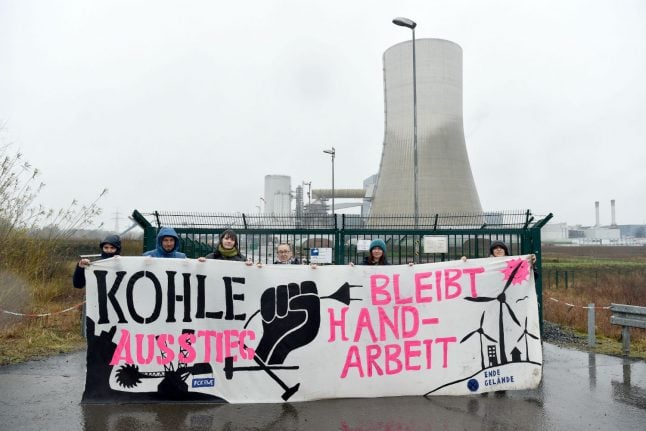Police said more than 100 protesters entered the site of the Datteln 4 coal-fired power plant in North Rhine-Westphalia.
The organizers, a protest group called Ende Gelände (Game Over), put the number at 150.
The group said in a statement that their activists were “blocking crucial infrastructure”.
“Their action of civil disobedience is a protest against the coal law of the German government,” they said.
READ ALSO: Activists stage protests in Germany as cabinet passes coal exit law
The protest ended in the late afternoon, organisers said, while the power station operator announced legal action against the demonstrators.
“Our protest today is just the beginning,” said Kathrin Henneberger, a spokeswoman for Ende Gelände.
On Wednesday, ministers signed off on a 202-page draft law — under the clunky German title of “Kohleverstromungsbeendigungsgesetz” — to exit from coal by 2038 at the latest, by which time all coal-fired power plants and coal mines in Germany should be inactive.
However, environmentalists say the law is too little, too late.



 Please whitelist us to continue reading.
Please whitelist us to continue reading.
Member comments